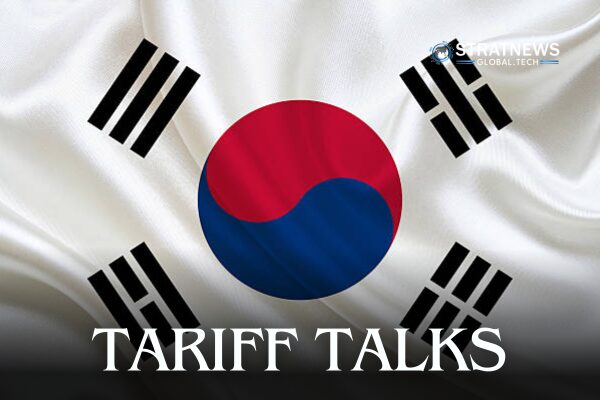South Korea Seeks Extension in Tariff Pause During US Trade Talks
South Korea is asking for an extension to the 90-day pause on 25% US tariffs, which will expire on 9 July, as trade talks between the two countries continue. Both sides had agreed in April to prepare a package to remove tariffs, but progress has been slow, focusing mainly on non-tariff barriers.
South Korea already imposes near-zero tariffs on US imports under an existing free trade agreement. However, discussions continue as Seoul aims to protect its domestic industries while addressing Washington’s demands.
South Korea & its Digital Services and Tech Regulations
Digital services have become a key point in the ongoing negotiations. South Korea’s government has proposed laws to regulate large tech firms, aiming to prevent market abuses and protect smaller businesses. President Lee Jae Myung has pledged to push these laws forward.
US lawmakers have expressed concerns over the proposed legislation, saying it mirrors the EU’s “discriminatory” Digital Markets Act and may unfairly target American companies like Google, Apple, and Facebook, while leaving out Chinese firms such as ByteDance and Alibaba.
Amid these concerns, South Korea’s ruling party is considering slowing down the progress of these laws to ease trade tensions.
Network Fees and Mapping Data Disputes
The US has raised issues over South Korea’s rules requiring content providers like Netflix to pay network usage fees. Restrictions on the export of location-based data, impacting companies like Google and Apple, have also been discussed.
In 2016, South Korea denied Google’s request to store detailed mapping data on foreign servers due to national security concerns. A new ruling on Google’s updated request for location-based data is expected on 11 August.
Agriculture and Beef Market Access
The US is seeking better access to South Korea’s agriculture sector, including beef, apples, and potatoes. While South Korea is the largest buyer of US beef, it restricts imports from cattle over 30 months old due to concerns over mad cow disease.
Farmers’ groups in South Korea have raised concerns about further market openings, especially after earlier agreements that will reduce beef tariffs to zero by 2026.
South Korea’s trade ministry has indicated it will emphasise the sensitivity of agriculture in the talks, while rice tariffs, which stand at over 500%, have not been raised during discussions.
Defence, Investments, and Energy Cooperation
Cost-sharing for the 28,500 US troops in South Korea and foreign exchange policy issues are being handled through separate channels.
Trade officials have highlighted South Korea’s potential to support the US manufacturing sector through cooperation in shipbuilding, batteries, chips, and semiconductors.
Regarding energy cooperation, South Korea has shown interest in a $44 billion LNG project in Alaska. However, officials remain cautious, citing unclear feasibility, with further technical details expected later this year.
with inputs from Reuters


